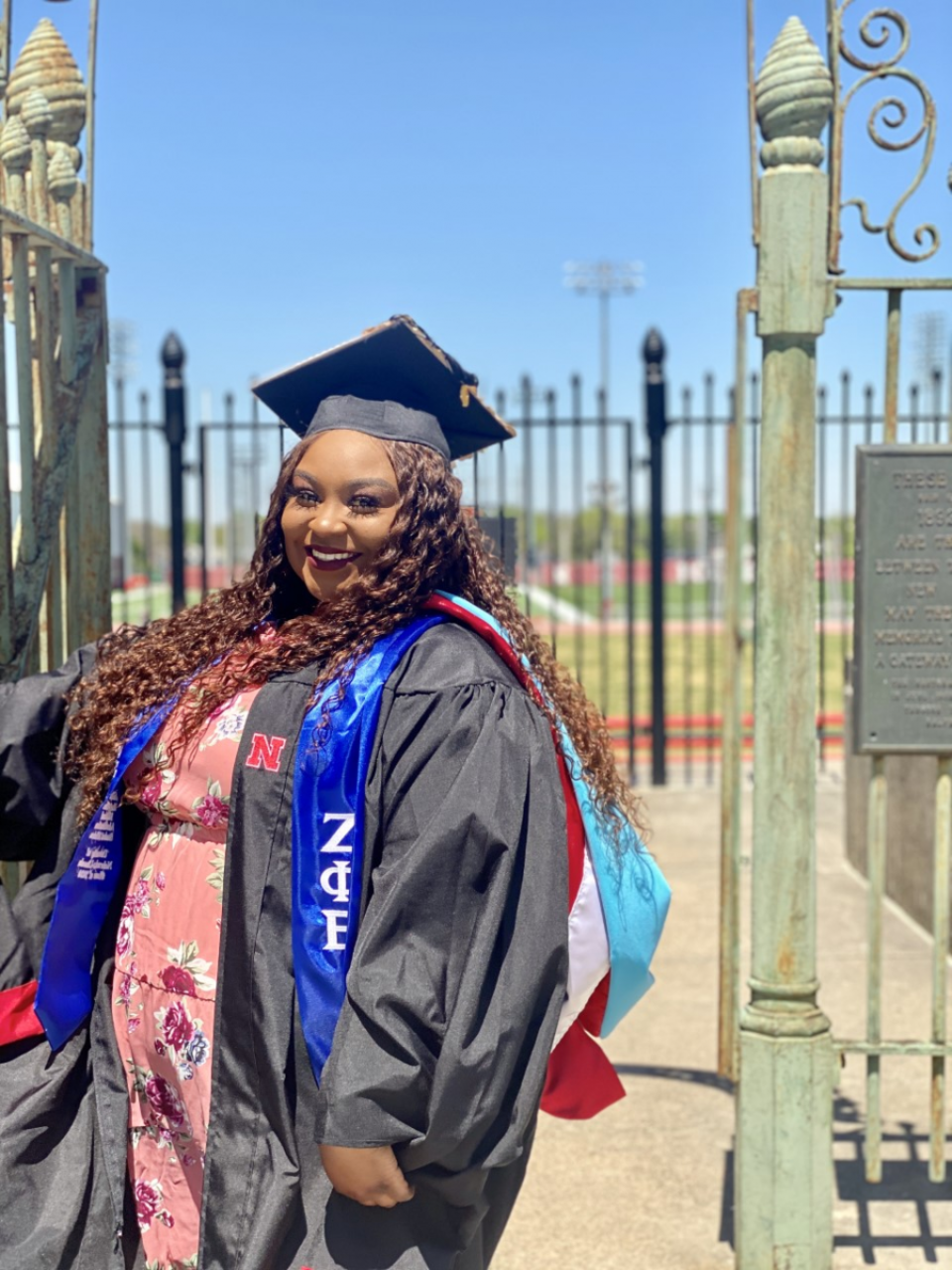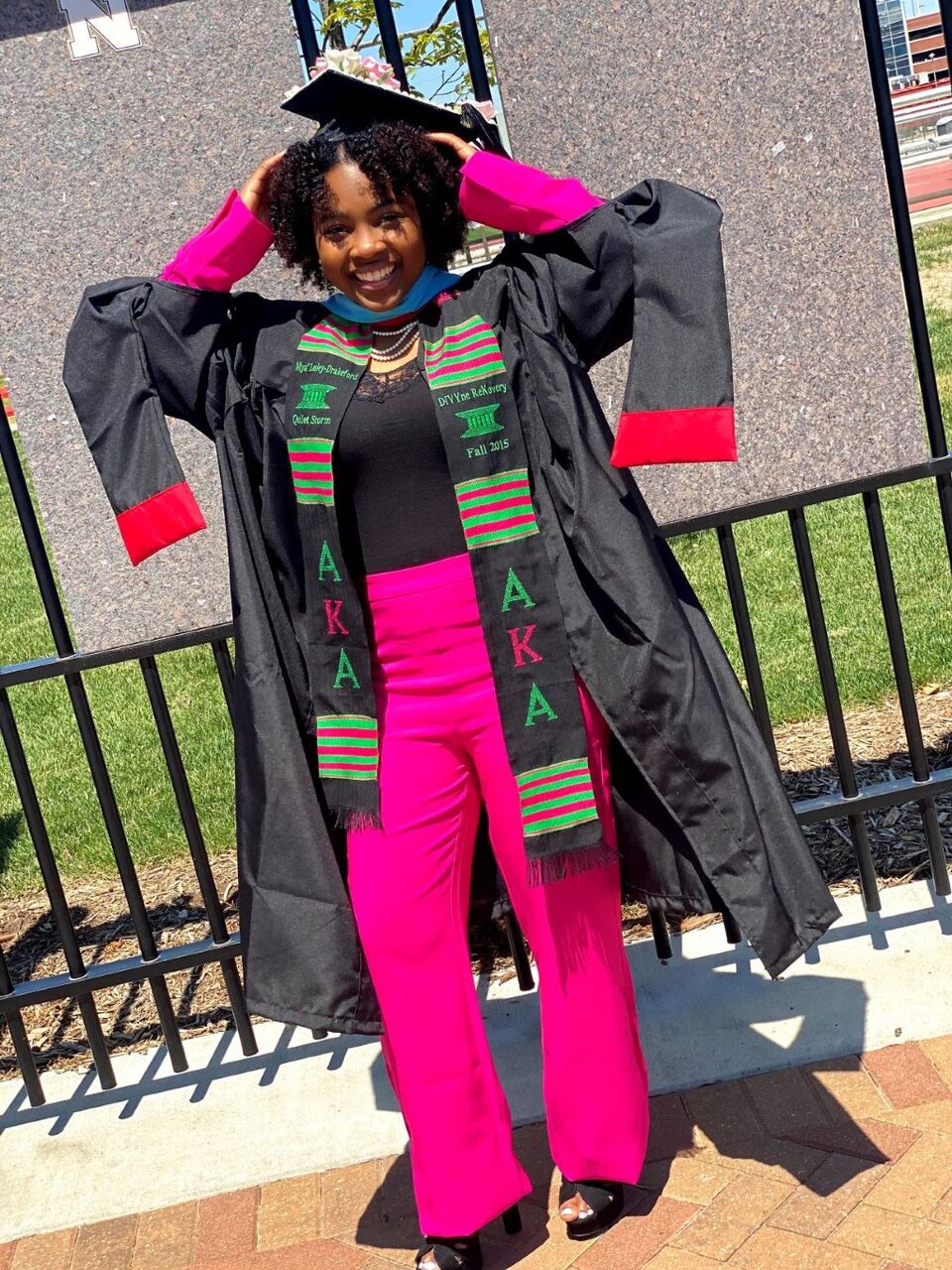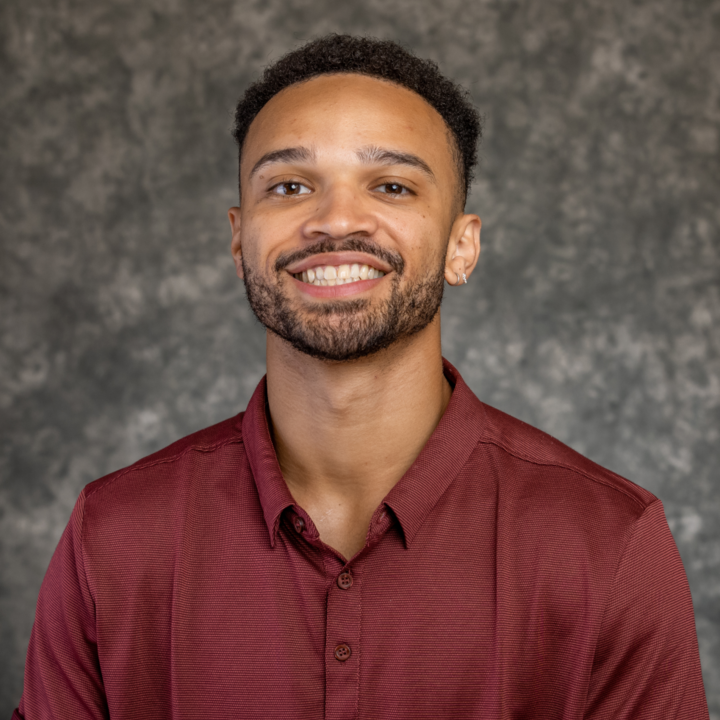Student Affairs Administration
Master of Arts (M.A.) in Educational Administration
Toward the Future of Student Affairs
College students today, the subjects they learn, and the learning environment are continually changing. Student affairs professionals must not only be familiar with promising practices for supporting students today, but they must be prepared to visualize the future and create programs, services, and policies for that evolving reality. The Master of Arts (MA) in educational administration with a specialization in student affairs administration offers students the opportunity to grow their understanding of various student experiences and be the future leaders of the profession. They learn approaches to advising students, planning programs, and developing policies through a deep exploration of current literature, applying theory to practical situations, and implementing solutions that account for the whole of the student body and the importance of access in education.
The Nebraska Difference
We’ve built a program aligned with CAS Standards and ACPA/NASPA competencies. Students connect their own lived experiences in college and professional experiences with a deep understanding of the research on college student experiences and the higher education environment. Students complete a paid assistantship, which is a learning lab where students make meaning of current research discussed in the classroom through hands-on experience in offices across campus. The cohort structure allows students to develop strong relationships with each other and full-time program faculty.
We prepare the future leaders in student affairs by mentoring how to serve a wide diversity of college students and how to implement policies and practices in higher education to serve the full breadth of students. We do this in part by encouraging students to complete original research on their interests. We call it The Nebraska Difference.
#LEADBIGRED
Request Information
Cost
*EDAD tuition is classified under the University's base tuition rate*
Faculty Advisors
Learning the research interests and expertise areas of potential faculty advisors, particularly at the doctoral level, is an important consideration for prospective students. We encourage prospective applicants to learn about faculty advisors via the links below and through the “Meet our Team” link on the “About EDAD” tab.” Based on capacity, the following faculty members serve as advisors in this program:
Our Unique Program
Faculty
- Students learn from faculty who conduct and share leading research on contemporary challenges and opportunities in higher education. These scholars have devoted their careers to teaching, researching, discovering, and sharing what works in higher education administration.
- Students also learn from faculty with decades of combined experience as higher education administrators and leaders who have lived and breathed the work of directors, coordinators, and supervisors at a variety of higher education institutions.
Courses and Schedule
- Full time students take this program while completing a part time assistantship that pays tuition, health benefits, and a small stipend.
- Courses meet in person daily either from 2-5 pm or 4-7pm.
- Student complete this program in two years.
Individual Attention, Support, & Hands-on Learning
- Students apply student development theory and other current research to their unique work environments while building supportive relationships with faculty and colleagues. Students leave the program with an expanded network of support, connections, and perspective.
- Multiple opportunities to grow through additional learning opportunities such as the Women in Educational Leadership Conference (WELC), the Critical Issues Forum, and the Sybouts Student Research Symposium.
From Day One
- With a thorough background in theory and experience with its application, our graduates are Day-One-Ready for student affairs positions like multicultural affairs, student involvement, residence life, academic advising, campus recreation, career services, and many more.
Launching Your Journey
Program Curriculum
The student affairs administration specialization is an on-campus program, beginning in the fall semester, designed for students that will be enrolled full-time for two consecutive academic years and hold graduate assistantships
This program is a unique, two-year (full-time students) master's preparation program for student affairs professionals. Students complete and defend a thesis (Option 1) or complete six credit hours of electives (Option 3) and a capstone.
If accepted you receive:
- Close interactions and mentor relationships formed with professors
- The tight bond you have with your cohort and the others in the program, built-in friends and support system from the start
Students who are awarded a graduate assistantship receive:
- Full tuition waiver and stipend
- Majority of premiums of a comprehensive health insurance program covered
Frequently Asked Questions
Frequently Asked Questions
What is the primary focus of your program?
The Educational Administration – Student Affairs Administration program has three main focus areas – student development, university administration, and research. As a program we question whether current practices in higher education support all students and encourage students, staff, and faculty to try and find ways to support more students.
Is it academic or practice based?
We have a theory to practice curriculum in which students are expected to apply the course materials into their day-to-day work at their assistantships.
What separates your program from others?
Our program is unique in the fact instead of just having faculty focused on obtaining external research funding, we currently have two core teaching faculty members whose main role is teaching and advising. Our program also maintains a strong commitment to research.
How many students enroll in your program each year?
Every year our program accepts average of between 17-20 students into our cohort. This number does vary depending on the number of assistantships available.
Does your program organize students by cohort?
Yes, students take 85% of their courses in a specific order with their cohort. If a student decided not to complete a thesis there are two electives for them to take. Students who do not opt to write a thesis are required to complete a capstone paper or presentation to meet degree requirements as outlined by graduate studies.
Does your program require the GRE?
No.
What does the admission committee look for?
Applicant files are reviewed to see that the applicant has an understanding of student affairs and what they might reasonably expect to learn in the program. Faculty look for applicants whose interests align with the program goals. Academic potential demonstrated by prior grades, improvement in grades over time, quality of application, or other scholarly related endeavors are considered.
Since the program is designed to prepare students to work with a wide variety of college students, applications are reviewed to see that the applicant has a demonstrated interest in working with a diverse group of people. It is easier to learn about a variety of differences when people in the program have different backgrounds and experiences so how applicants bring different perspectives, identities, and experiences are part of what is considered. Lastly, since candidates are encouraged to hold a graduate assistantship, the applicant’s resume and ability to secure a position are evaluated. Applicants are strongly encouraged to have a mentor in student affairs, or a career services staff member review their resume prior to submitting the application.
Does your program offer assistantships?
Students who are admitted to the academic program are invited, typically in February, to interview for assistantships.
Are there on-campus interviews? When do those tend to take place?
There will be on campus and virtual interviews in February 2022.
What benefits are offered for assistantships?
Most assistantships offer full tuition during the academic year with an additional 6 credits in the summer plus reduced cost health insurance and a stipend. Additional benefits are up to the discretion of the assistantship providers.
Are there assistantships available for Residence Life, Intercollegiate Athletics, or Greek Life for your program?
Graduate assistantships (GA) have occasionally been offered in Residence Life & Housing. Intercollegiate Athletics GA positions are typically for physical trainers and assistant coaches; Fraternity and Sorority Life often has one position. Students may also seek out internship or practicum opportunities in these areas if a GA position is not available. Availability is different year to year; sometimes there is not a vacancy so that particular assistantship may be offered in a different year.
How many assistantships are available that provide housing or cover housing cost?
Only if there is a live -in position in Residence Life. Stipends are intended to help cover housing and necessities, but it is not guaranteed that it will cover all these expenses.
Does your program guarantee assistantships?
No, we do not guarantee that you will get an assistantship if you interview. However, if you are admitted into our program we will work to prepare you for and connect you with assistantship opportunities.
Does your program require students to do internships or practicums as a part of the program? If so, how many?
Yes, two supervised experiences are required. One experience can be the graduate assistantship and this experience is completed during the academic year. The other internship experience is typically completed during the Summer, but students are free to schedule their internship at their discretion. An internship seminar is also offered in the summer to complement the internship fieldwork. Some students may opt to complete an additional internship as an elective.
What types of assistantships are offered?
In the past we have had positions in academic advising, career services, student involvement, multicultural services, retention programs, outdoor adventures, fraternity and sorority life, college recruitment, student support services, campus recreation, wellness, LGBTQA+ Resource Center, college prep programs, graduate and professional student service among others. Position availability changes from year to year.
What are the cost to attend?
Many students in our program have graduate assistantships which pay for tuition costs. These positions usually pay a portion of the health insurance. In addition, assistantships offer stipends that range anywhere from $1000/month to $1,500/month in order to help cover living expenses and student fees. On average, students are responsible for about $1,500 in fees each semester (fall and spring) and typically pay closer to $150 for the summer term. Depending on the assistantship, some positions will be available over the summer for work.
In addition, students will have the cost of books and other course related materials. The cost for books would vary from term to term but the cost averages out to be between $200-$400 per term, depending on the types of books required, where you buy your books, and your preferences on the condition (rental, used, new). Students are able to purchase a parking pass through the university. Cost vary depending on type of pass and the duration of pass (semester/9-month/annual) with a semester parking pass averaging anywhere from $104-$365. Cost are subject to change based on decisions made by the UNL Parking and Transit Services office and by UNL policy changes. For more information on costs, see the Graduate/Professional Tuition page.
What is your employment placement rate after graduation?
As a program, we have about a 90% placement rate for our students who want to work in student affairs jobs after graduation.

"Honestly, I would like to give a huge kudos to the EDAD faculty and staff for all that they did for my cohort and myself. They had so many plans as far as bringing in people who have gone through the job search process as well as talking about life after graduation. It was a huge learning experience both in and out of the classroom. Each day I was figuring myself out as a professional due to course work, classroom conversations, and my assistantship. Then COVID happened. The professors did everything that they could to provide resources for us while also making adjustments of their own. They truly have our best interest at heart."
Ashely Swift, Assistant Director for Fraternity and Sorority Life at Mississippi State University
"Coming from a smaller size undergraduate institution, I was a little overwhelmed with the size of UNL and how things worked differently from what I was use to. I like that my professors especially Dr. Rumann and Dr. Bondi helped with my adjust to UNL by always being available to discuss concerns that I had or just being that listening ear. I love how open EDAD is to new ideas to use for future programs and encouraging graduate students to step outside of their comfort-zone."
Mya' Lesley-Drakeford, Coordinator of Diversity & Multicultural Retention at Lamar University

Application Process
Now Accepting Applications for Fall 2026! Apply by March 15th for priority consideration.
Faculty members are experienced administrators, curriculum specialists, and college administrators who are dedicated to preparing students for rewarding and fulfilling careers in educational administration.
The M.A. program offers students the opportunity to give special attention to their interest in Student Affairs Administration through on-campus study.
Students admitted to the program with a specialization in student affairs have the opportunity to apply for assistantships through various offices on campus.
Graduate Admission Requirements
- Application for Admission with $50 non-refundable application fee.
- Transcripts from previous institutions. Unofficial transcripts are permitted during admission; official transcripts are required prior to enrollment.
- If the student’s native language is not English, verification of English proficiency is required.
- If International: upload copies of all college- or university-level transcripts or mark sheets (records of courses and marks earned), with certificates, diplomas, and degrees plus certified English translations.
- Official documents are required from all students who are admitted and enroll. Photocopies of certified records are not acceptable. International students enrolled in other U.S. institutions may have certified copies of all foreign records sent directly to the Office of Graduate Studies by their current school’s registrar office.
- If applicant is not a US citizen and expects an F or J visa: financial information.
- Applicants must also fulfill any additional requirements the department specifies at the time of application.
Major Admission Requirements
The following materials should also be submitted by March 15:
- Personal Statement: Address why you are applying to this program, explicitly state three things you hope to gain from the program. (max 500 words or 3 minutes)
- Respond to one of the following questions (max 500 words or 3 minutes)
- A) One purpose of the program is to prepare educators to support a wide variety of students. What are some specific things you have done to create a positive and affirming environment among people you work with or in your community?
- B) Describe one meaningful experience where what you knew previously was challenged. Share what you learned about yourself and others from that experience.
- Resume
- Review current faculty and their research areas.
- Applicants may be contacted for a virtual interview in late January or early February to help us with admission decisions.
- Note: We will have a virtual informational welcome on February 26, 2026 for applicants are accepted into the program. Also, visit days and graduate assistantship interviews will be February 26 for virtual events and February 27 for in-person.
*For the personal statement, essay, and additional questions a written statement, video, or image can be provided as the method of response. If you chose to provide an image, you may want to include a 1- page statement or a 1-minute video explaining what it means to you.


